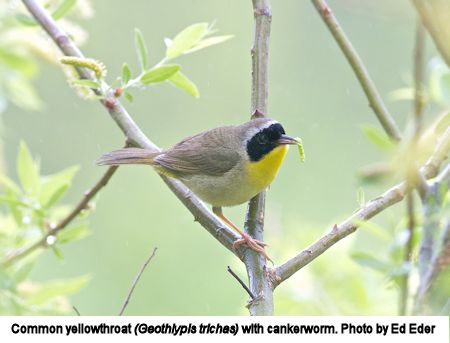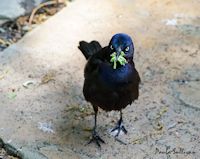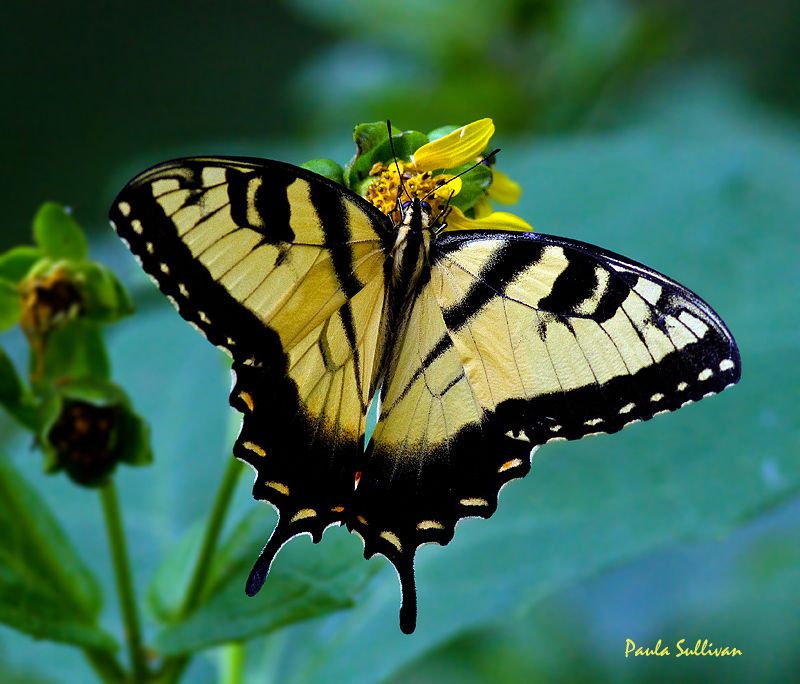FODM Urges Fairfax County to Stop Pesticide Spraying

Beginning in 2000 and for several years since, Fairfax County has sprayed over thousands of acres targeting a native moth caterpillar called the fall cankerworm (Alsophila pometaria). The National Park Service does not spray its properties, but a phenomenon known as “pesticide drift” can occur and chemicals can end up on unintended properties. We estimate that at least 110 kinds of butterfly and moth caterpillars are at risk of being killed by this insecticide.
 Common Grackle (Quiscalus quiscula) with bill full of cankerworm caterpillars. Photo by Paula Sullivan.The fall cankerworm is a native insect that has evolved over the millennia along with our native plants and trees and has many natural enemies like birds, beetles, frogs and bats.
Common Grackle (Quiscalus quiscula) with bill full of cankerworm caterpillars. Photo by Paula Sullivan.The fall cankerworm is a native insect that has evolved over the millennia along with our native plants and trees and has many natural enemies like birds, beetles, frogs and bats.
The pesticide used, a commercial application of Btk, is deadly to all exposed butterfly and moth caterpillars. We estimate that 62 species of spring butterflies could be killed by the pesticide. Fairfax County does not take into account this harm when deciding whether to spray insecticide each year.
Caterpillars have an important role in the ecosystem, including being a food source for many migrating and breeding birds and other wildlife. The fall cankerworm caterpillar in particular serves as an ideal source of food for birds because it has no spines or chemical defenses. We estimate that as many as 39 species of migrating birds and 65 species of breeding birds could be harmed by the spraying in Fairfax County. Fairfax County does not acknowledge or attempt to measure the potential indirect harm that its pesticide spraying may cause to Fairfax County’s wildlife.
 Eastern Tiger Swallowtail (Papilio glaucus) butterfly, Virginia's state insect. Photo by Paula Sullivan. FODM Board member Katherine Wychulis gave a video presentation to the Fairfax County Environmental Quality Advisory Council on January 11, 2017. She urged the county to --
Eastern Tiger Swallowtail (Papilio glaucus) butterfly, Virginia's state insect. Photo by Paula Sullivan. FODM Board member Katherine Wychulis gave a video presentation to the Fairfax County Environmental Quality Advisory Council on January 11, 2017. She urged the county to --
· stop broadcast insecticide spraying targeting the native fall cankerworm;
· acknowledge the benefits of the fall cankerworm and other caterpillars to birds and other wildlife, especially birds migrating through Northern Virginia in the spring;
· recognize the pesticide’s harm to butterflies and other non-target species; and
· to re-direct funds from pesticide spraying to promoting tree health and native tree diversity.
You can view her presentation here: https://vimeo.com/198235112 and find more information at http://audubonva.org/asnv-urges-stop-killing-caterpillars/?rq=cankerworm .
The Friends of Dyke Marsh is part of a 12-member coalition of organizations urging Fairfax County to stop this program. For more information about the cankerworm and the work of these organizations, visit http://audubonva.org/advocacy-issues-list/2016/3/2/redirect-cankerworm-funds-to-forest-health?rq=cankerworm .

 Friends of Dyke Marsh, Inc. is a non-profit 501(c)(3) organization.
Friends of Dyke Marsh, Inc. is a non-profit 501(c)(3) organization.